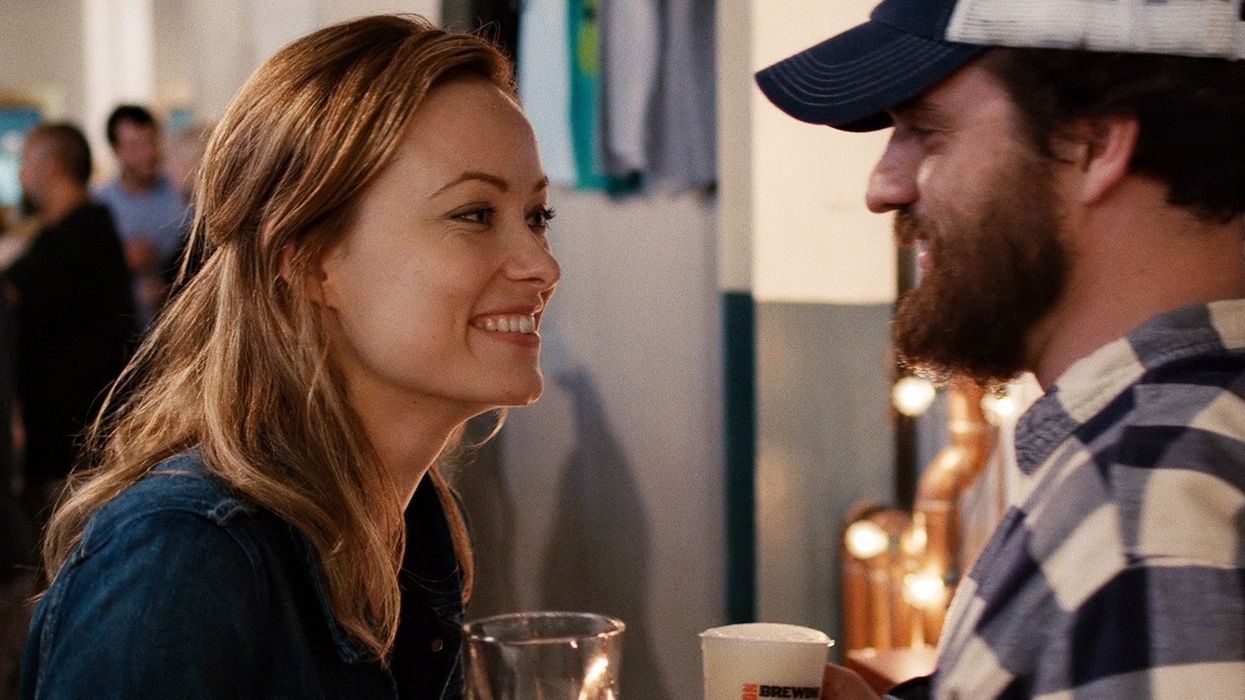How 'Drinking Buddies' Director Joe Swanberg Made 7 Features in a Single Year
If you want to make small indie films, you kind of have to be okay with a few things: you'll most likely always be broke, work non-stop, and won't find a whole lot of success.

I don't want to mislead you — low-budget indie filmmaking isn't all sunshine and rainbows. This is evident in the keynote director Joe Swanberg (Drinking Buddies, Silver Bullets) gave at SXSW today, in which he talked about the struggles he faced as a filmmaker from Chicago, whether it was trying to make films for nothing or the sheer insanity of making 7 feature films in a single year.
Here are several takeaways from his SXSW keynote (update: embedded in full below).
Try to put out as much work as you can (even if it's shit)
If you want to know what kind of filmmaker Swanberg is, all you have to do is take a look at his filmography. The man has only been making films for the last 10 years, but he already has 29 director credits to his name, 6 of which were all completed in 2011 alone. (Yes — that's 6 feature films in one year.) So, needless to say, Swanberg is prolific.
But why? Why would a filmmaker ever want to churn out such a high volume of work in such a short amount of time? According to Swanberg, it was mostly about getting his work noticed. He quipped that even if festivals, audiences, and critics ignore your work at first, if you start producing film after film after film, you're bound to get noticed eventually — even if your work is total shit.

Attention spans are shrinking, so release your film wisely
Making a film is difficult, but all the work that must be done after the cameras stop rolling is next level. You've got to start thinking about distribution strategies, film premieres, and festival runs, and one major issue Swanberg noticed after several of his films showed at SXSW is that audience attention spans are shrinking. He noticed that even if there was a significant amount of buzz during a project's festival run, it would all dry up once it was distributed 6 or 7 months later. His solution was to do a "festival day-and-date release", which just means releasing your film on VOD right after it premieres at a festival — that way, audiences will be able to watch (and pay for) your movie at the peak of its hype.
"The only way you're ever going to make any money is if you invest in your own movies."
Making 7 features in one year is not that crazy
Okay, yes it is, but not in a bad way. After meeting director Adam Wingard (You're Next, V/H/S), Swanberg learned that lightning quick, improvisational, super cheap filmmaking was a great way to raise your potential to make some money making movies. He notes that during this "7 films in a year" period, he was spending less than a week making these features and then turning right around and selling them to IFC. Was he making a huge profit? No. He admits that none of these films alone made much money, but cumulatively, they kept him fed, clothed, and able to continue working.
Invest in your own movies
You have to spend money to make money, right? It's pretty true when it comes to making small indie films, and there are several reasons why. First of all, you may have no other option. If you can't find financing, chances are you're going to have to foot the bill up front. Second, it allows you to keep working — and (hopefully) keep working the way you want. Lastly and most importantly, if you put up a significant investment that gives you a higher percentage of the ownership of your project, the more of a percentage of the profits you'll get back. This was an issue Swanberg addressed after making Drinking Buddies. He says he didn't make a whole lot of money on the film because he only had 7% ownership of the project. So, he decided to invest all of his earnings from Drinking Buddies into his next film Happy Christmas, and in doing this was able to make more money than he ever had before.

It's better to have no money than some money
This is one of the most interesting points from the keynote, because almost every filmmaker out there would agree that it's better to have a small budget than no budget at all. However, Swanberg says that having no money has more perks than having some, because, as he puts it:
If you have "some money", everybody is going to want some of that "some money." If you have "no money", everybody knows it — and then they're just there to work. In a best case scenario — you sell a movie and then you're able to pay people afterwards better than you could've paid them if you had "some money."
For more, see our complete coverage of the 2016 SXSW Film Festival. Listen to our podcasts from SXSW (or subscribe in iTunes):
No Film School's coverage of the 2016 SXSW Film Festival is sponsored by SongFreedom.













